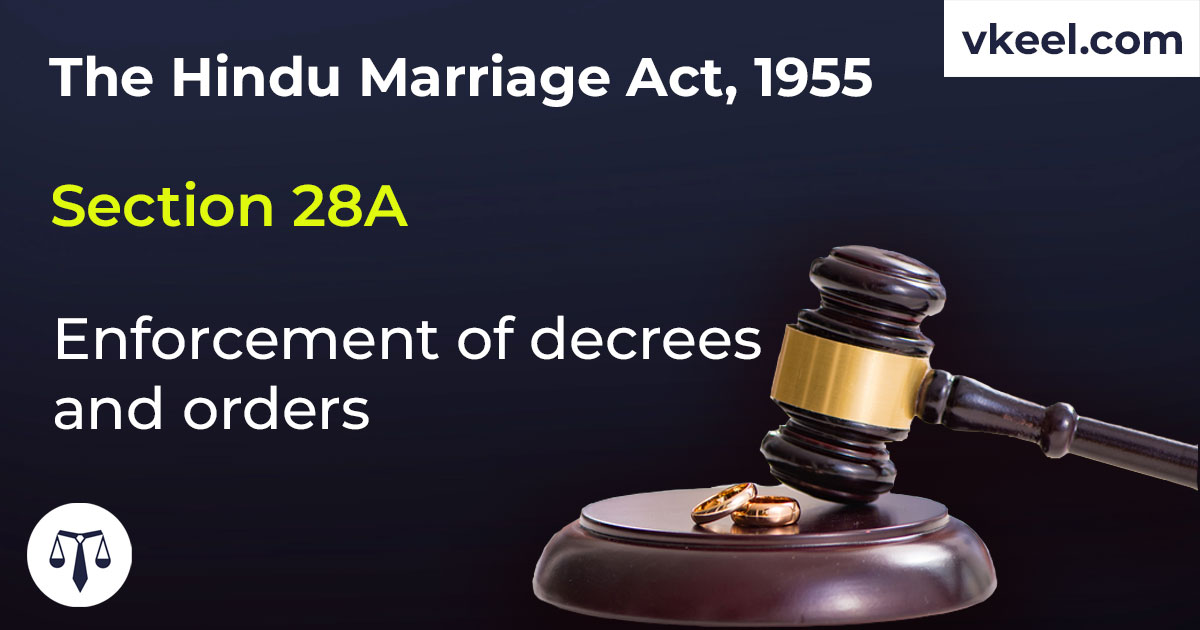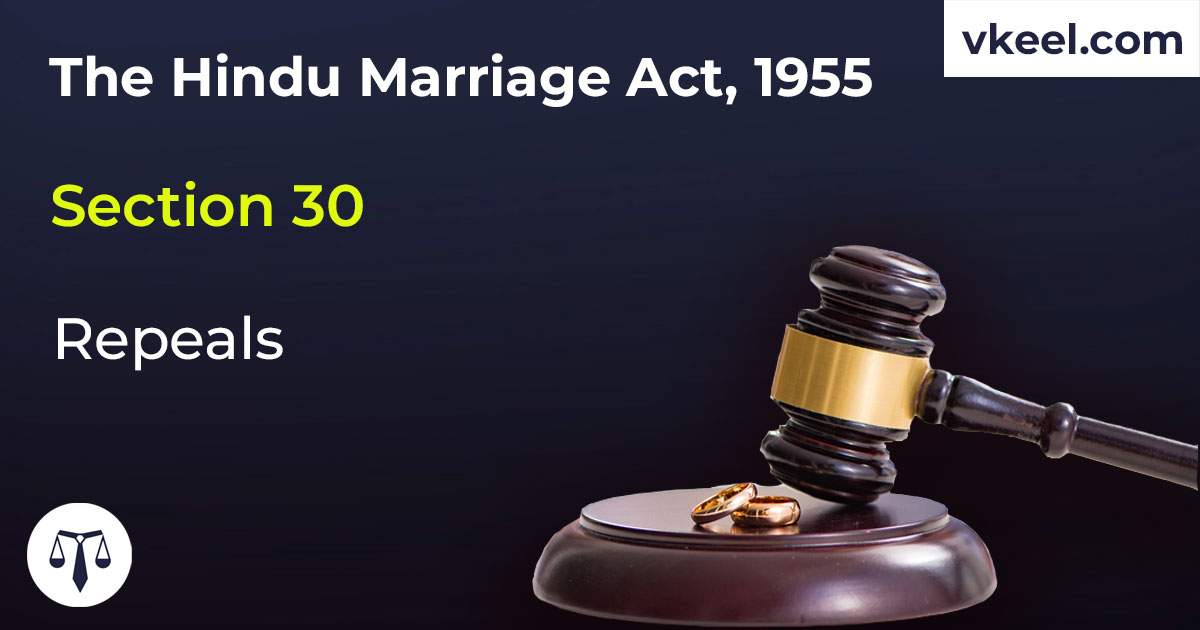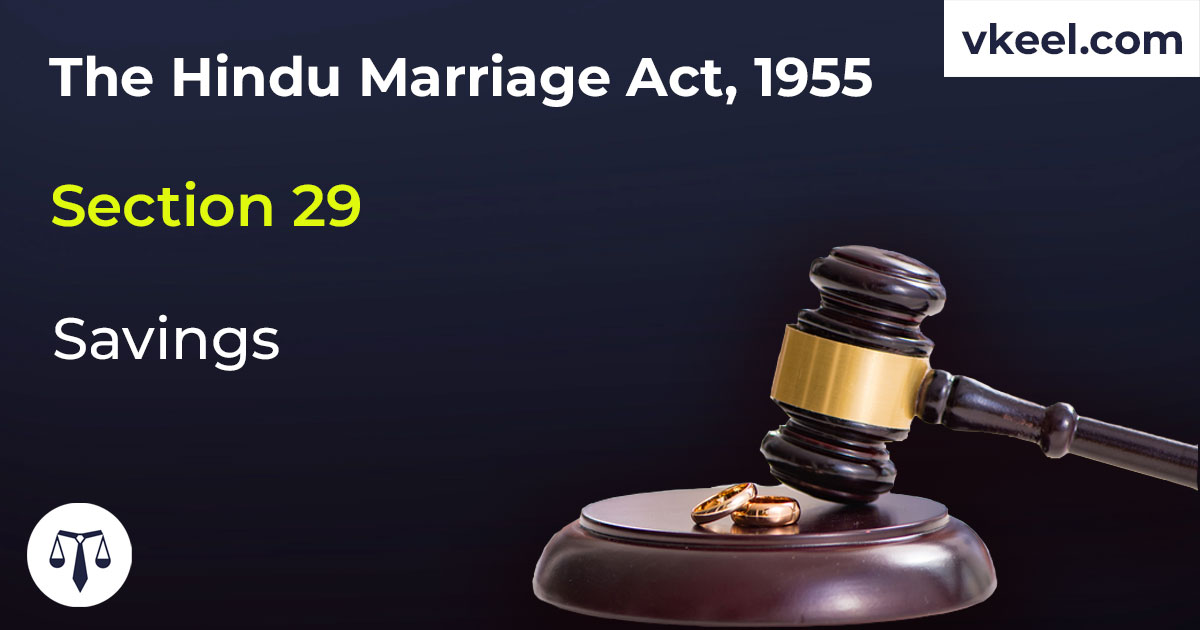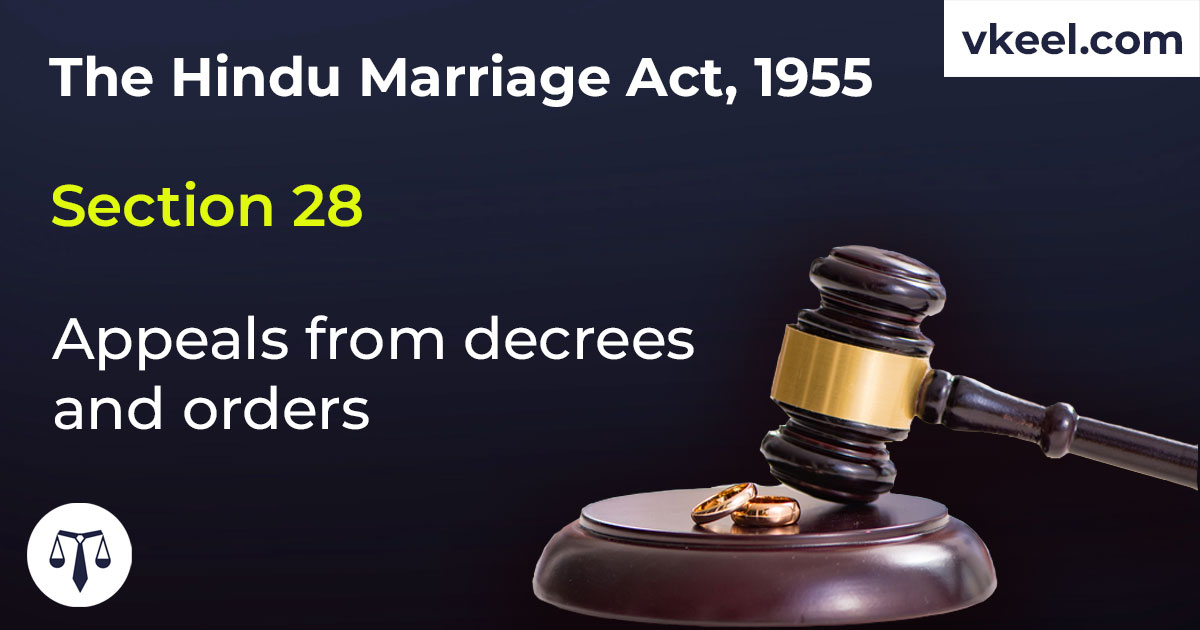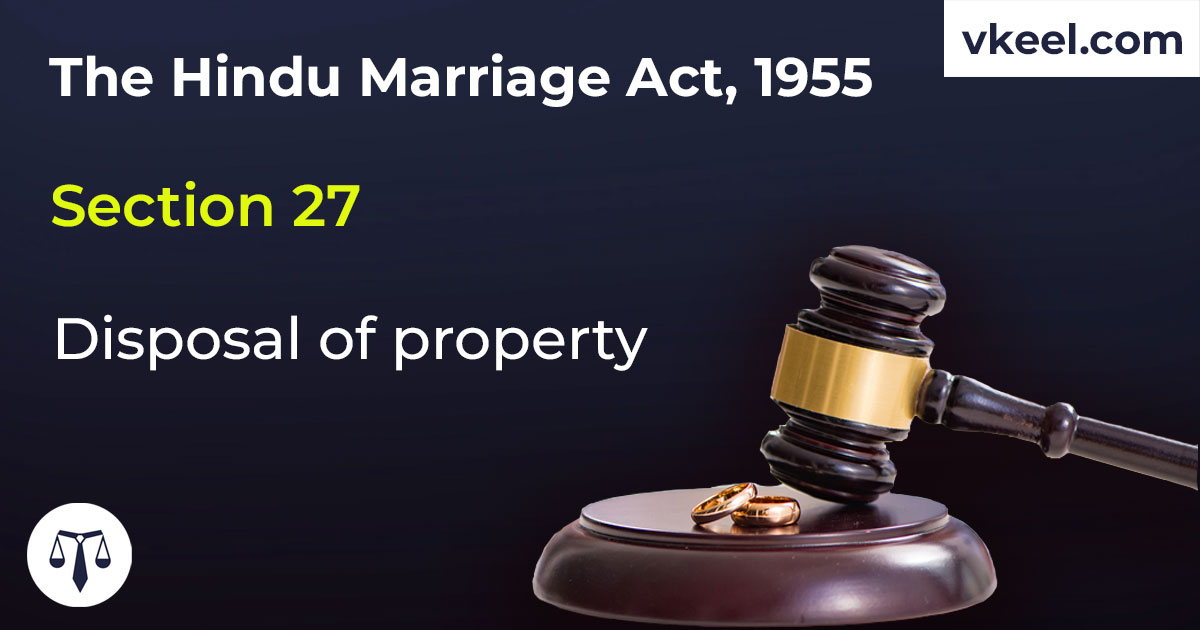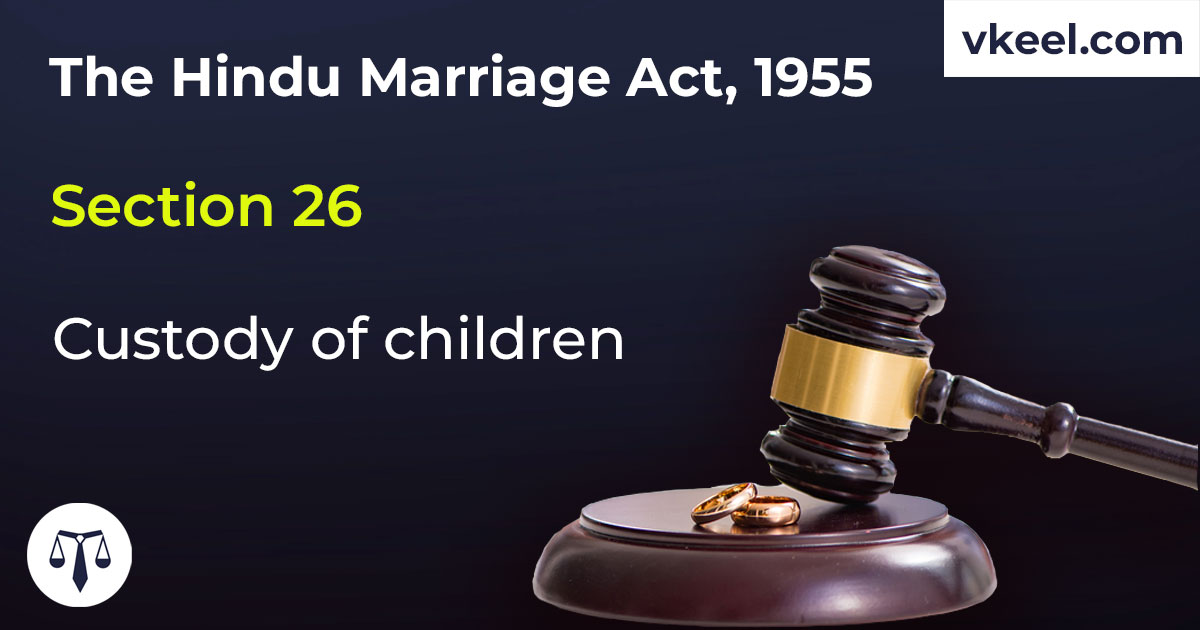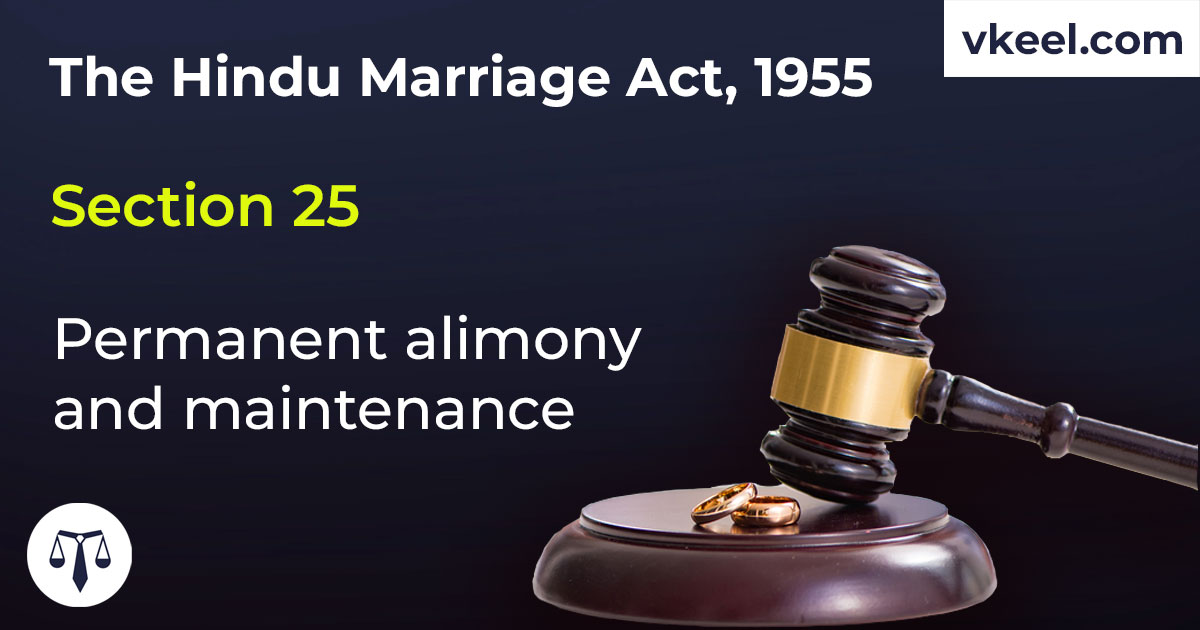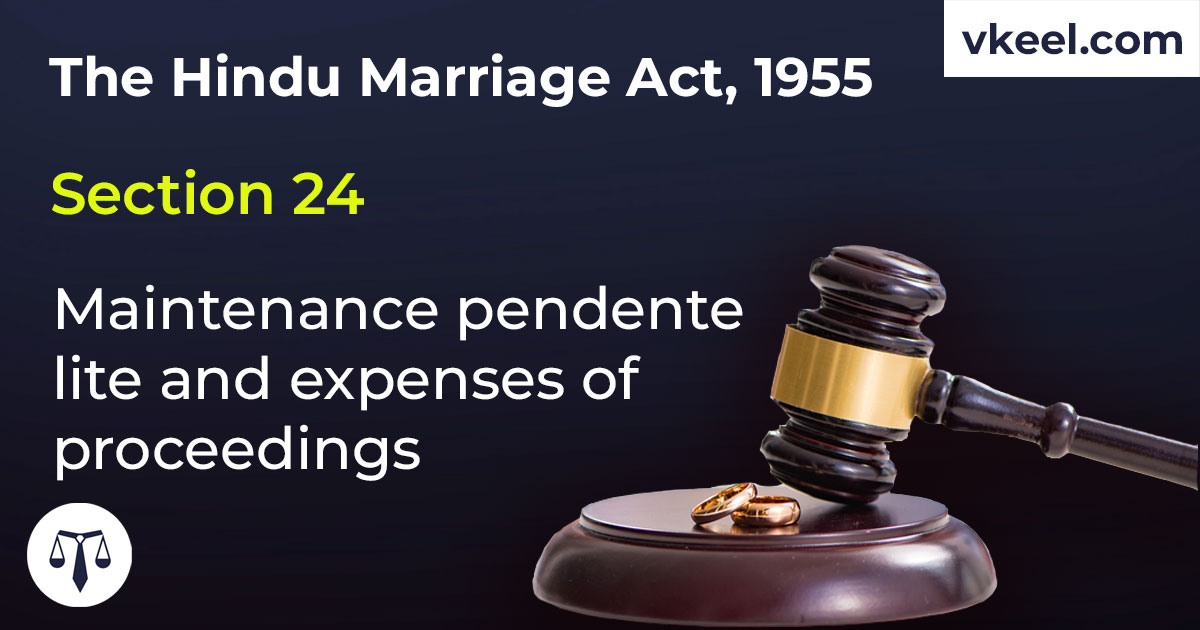Section 28A Hindu Marriage Act 1955 – Enforcement of decrees and orders
By Vkeel Team
Table of Contents
Description
“Section 28A Hindu Marriage Act 1955”
All decrees and orders made by the court in any proceeding under this Act shall be enforced in the like manner as the decrees and orders of the court made in the exercise of its original civil jurisdiction for the time being in forced.
Effectiveness of Section 28A Hindu Marriage Act 1955 in the Enforcement of Decrees and Orders
Section 28A Hindu Marriage Act 1955 is an important provision that provides for the enforcement of decrees and orders passed by courts in matrimonial cases. This section is intended to ensure that the orders and decrees of the court are complied with and that the parties to the marriage are not allowed to evade their obligations.
Section 28A Hindu Marriage Act 1955 states that any decree or order passed by a court in a matrimonial case shall be enforceable in the same manner as if it were a decree or order passed by a civil court. This means that the court can take action to enforce the decree or order, such as attaching the property of the party who has failed to comply with the order or decree, or even imprisoning the party who has failed to comply.
The effectiveness of Section 28A Hindu Marriage Act 1955 in the enforcement of decrees and orders has been studied by various researchers. The results of these studies have been mixed. Some studies have found that Section 28A is effective in enforcing decrees and orders, while others have found that it is not as effective as it could be.
One of the main issues with Section 28A is that it does not provide for any specific remedies for non-compliance with the orders and decrees of the court. This means that the court has to rely on general civil remedies, such as attaching the property of the party who has failed to comply with the order or decree, or even imprisoning the party who has failed to comply. This can be a lengthy and expensive process, and it is not always effective in ensuring compliance with the orders and decrees of the court.
Another issue with Section 28A is that it does not provide for any specific penalties for non-compliance with the orders and decrees of the court. This means that the court has to rely on general civil penalties, such as fines or imprisonment, which may not be sufficient to ensure compliance with the orders and decrees of the court.
Overall, it appears that Section 28A Hindu Marriage Act 1955 is not as effective as it could be in the enforcement of decrees and orders. This is due to the lack of specific remedies and penalties for non-compliance with the orders and decrees of the court. It is therefore important that the legislature takes steps to ensure that Section 28A is amended to provide for specific remedies and penalties for non-compliance with the orders and decrees of the court. This would ensure that the orders and decrees of the court are complied with and that the parties to the marriage are not allowed to evade their obligations.
Role of Section 28A Hindu Marriage Act 1955 in Ensuring the Enforcement of Decrees and Orders
Section 28A Hindu Marriage Act 1955 is an important provision that ensures the enforcement of decrees and orders passed by courts in matrimonial cases.
Section 28A Hindu Marriage Act 1955 states that any decree or order passed by a court in a matrimonial case shall be enforced in the same manner as if it were a decree or order passed by a civil court in a suit. This means that the court can issue orders for the payment of maintenance, alimony, or other relief to the aggrieved party, and the same shall be enforced in the same manner as if it were a decree or order passed by a civil court in a suit.
The enforcement of decrees and orders passed by courts in matrimonial cases is an important aspect of the Hindu Marriage Act 1955. This is because it ensures that the aggrieved party is able to receive the relief that has been granted to them by the court. Without the enforcement of such decrees and orders, the aggrieved party would not be able to receive the relief that has been granted to them by the court.
Section 28A Hindu Marriage Act 1955 also provides for the enforcement of decrees and orders passed by courts in matrimonial cases by providing for the attachment of the property of the defaulting party. This means that if the defaulting party fails to comply with the decree or order passed by the court, then the court can attach the property of the defaulting party and sell it in order to recover the amount due to the aggrieved party.
In conclusion, Section 28A Hindu Marriage Act 1955 is an important provision that ensures the enforcement of decrees and orders passed by courts in matrimonial cases. This provision ensures that the aggrieved party is able to receive the relief that has been granted to them by the court, and also provides for the attachment of the property of the defaulting party in order to recover the amount due to the aggrieved party.
Description Source: indiacode
Disclaimer:
The information provided in the article is for general informational purposes only, and is not intended to constitute legal advice or to be relied upon as a substitute for legal advice. Furthermore, any information contained in the article is not guaranteed to be current, complete or accurate. If you require legal advice or representation, you should contact an attorney or law firm directly. We are not responsible for any damages resulting from any reliance on the content of this website.

